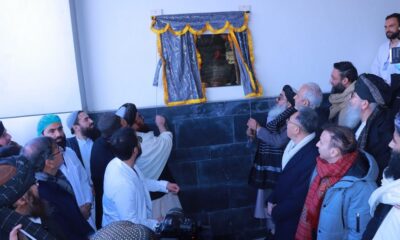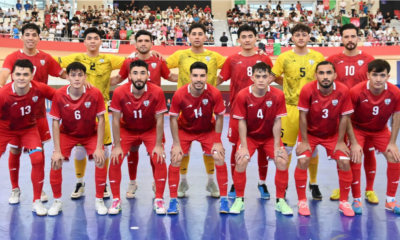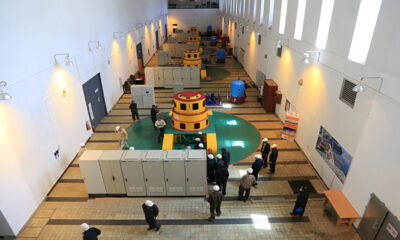Latest News
Abdullah urges Taliban to table their demands in Doha

Abdullah Abdullah, Chairman of the High Council for National Reconciliation on Tuesday called on the Taliban to put their demands on the table so their issues can be discussed.
Speaking at a conference on the establishment of the Women’s Affairs Commission of the HCNR, Abdullah also said that based on information received, Taliban are responsible for most of the targeted attacks in the country.
“Today, unfortunately, most of this information indicates that these acts (recent explosions and targeted killings) are being carried out by the Taliban,” Abdullah said.
Abdullah stated that if the Taliban have something to say or any requests they need to table these so the issues can be discussed by the negotiating teams in Doha.
Abdullah also emphasized that no individual or group can impose their will on the Afghan people by force, and that the Taliban should not see this as an option.
“Well, the negotiating table and the place of negotiations are clear, and the Afghan delegation is there, and there is room for discussion. Whatever argument they [Taliban] have and whatever they want to raise, they can discuss it there. And nothing else can be decided in the absence of the Afghan people, no one can promise the Taliban that this will guarantee their future or that the future of the country will be handed to them; this is the right of the Afghan people and the Afghan people have come to the conclusion that the solution is not war, nor killing people or targeting the people of Afghanistan,” Abdullah added.
“Any side who takes the responsibility for prolonging the war must also consider the consequences. Can one side impose its will on the other people of Afghanistan through war?” he asked.
“If we learn a lesson from the 42 years of war in Afghanistan, it is that a will cannot be imposed on Afghan people by force,” he said.
Meanwhile, the deputy head of the HCNR said that everyone, especially women, are calling for a ceasefire in the country, because people are tired of making sacrifices.
“Afghan women all in one voice call for an immediate ceasefire, and they can no longer afford to lose their loved ones.” Zuhra Mathar Ahmazaim, deputy head of the HCNR said.
The Afghan Republic’s peace negotiating team has been waiting for the Taliban delegation to return to the talks tables for two weeks. However, the Taliban are staying away and have not provided any reasons for this.
Abdullah also said on Tuesday that the Taliban is making statements about who should be in power instead of “discussing this at the negotiating table”.
“In the Islamic Republic of Afghanistan, there is diversity, there are thoughts and opinions, people have rights, and today it is matter of women, in our country, the women of our country have come out; but in the last 40 years they were on the scene, but only in the last 20 years, they (women) have emerged and shown their competence, introduced their powers and abilities, and represented the people well,” Abdullah added.
Abdullah also said women make up half of society and their role in the peace process is crucial.
“The commission will focus on the role of women in the peace process,” Abdullah said.
Women’s rights activists also stressed that their legitimate demands should be considered at the negotiating table.
Latest News
FAO, ADB launch $100 million food security program in Afghanistan
Over 151,000 rural households will benefit through support for crop production, livestock protection, and livelihood recovery.
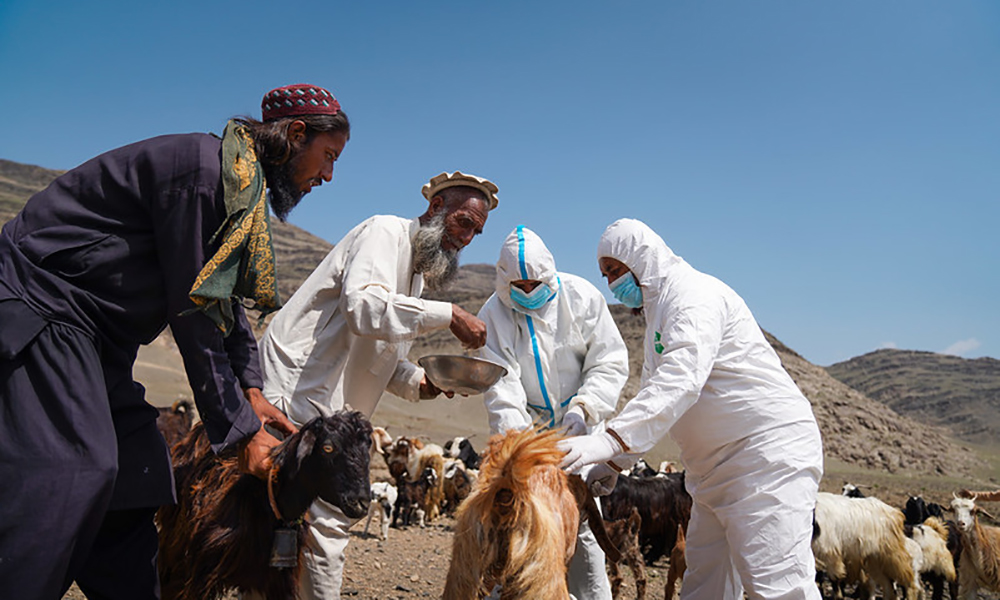
The Food and Agriculture Organization of the United Nations (FAO), in partnership with the Asian Development Bank (ADB), has launched a $100 million initiative to strengthen food and nutrition security and restore agricultural livelihoods across Afghanistan.
FAO said the two-year program will support more than one million vulnerable people, including returnees from Pakistan and Iran, host communities, and families affected by recent earthquakes and floods.
Over 151,000 rural households will benefit through support for crop production, livestock protection, and livelihood recovery.
Agriculture remains central to Afghanistan’s rural economy but faces persistent challenges such as low productivity, damaged irrigation systems, limited access to quality inputs, and climate shocks.
FAO estimates that in 2026, 17.4 million people will face acute food insecurity, with 4.7 million in emergency conditions, as drought and anticipated La Niña impacts worsen conditions.
The initiative will focus on climate-smart, people-centered approaches, with special attention to women-headed households and the most vulnerable provinces.
The program builds on the long-standing FAO-ADB partnership. Since 2022, ADB has provided about $265 million in grants through FAO, reaching 5.6 million people across the country.
FAO said the initiative aims to link immediate food assistance with longer-term resilience to help Afghan families withstand future crises.
Latest News
Australia announces $50 million in new humanitarian aid for Afghanistan

Australia has pledged an additional $50 million in humanitarian assistance for Afghanistan as the country continues to face a severe humanitarian crisis.
In a joint statement on Wednesday, Foreign Minister Penny Wong and International Development Minister Anne Aly said the funding will focus on addressing urgent needs, particularly among women and girls.
The new allocation brings Australia’s total humanitarian support to Afghanistan since 2021 to $310 million. Nearly 22 million people in the country are in urgent need of aid due to economic collapse, food insecurity and ongoing restrictions.
Wong said Australia’s support aims to save lives and meet basic needs, while Aly noted the assistance will be delivered through trusted international partners.
The funding will be channelled through agencies including the World Food Programme and the UN Office for the Coordination of Humanitarian Affairs. Afghanistan remains heavily reliant on international aid as millions continue to face hunger and limited access to healthcare.
Latest News
Russian and Afghan defense officials meet in Moscow, pledge closer cooperation
The meeting focused on the current situation and prospects for expanding cooperation in areas of mutual interest between the two sides.
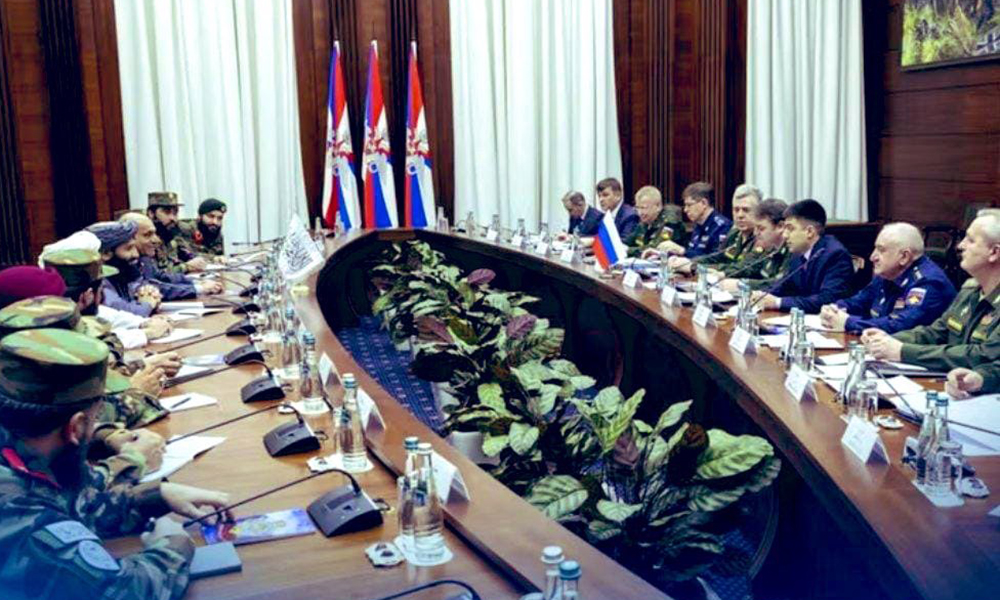
Russian media, citing the country’s Ministry of Defense, report that Vasily Osmakov, Russia’s Deputy Defense Minister, held talks on Wednesday in Moscow with Mohammad Farid, the Deputy Defense Minister of the Islamic Emirate of Afghanistan for Strategy and Policy.
According to the reports, the meeting focused on the current situation and prospects for expanding cooperation in areas of mutual interest between the two sides.
Russian sources said that at the conclusion of the talks, both parties agreed to take further joint steps aimed at establishing more regular and systematic cooperation.
So far, the Islamic Emirate of Afghanistan has not issued an official statement regarding the meeting or its outcomes.
-

 Sport4 days ago
Sport4 days agoThrilling battles await as AFC Futsal Asian Cup Indonesia 2026 set to kickoff in hours
-

 Sport5 days ago
Sport5 days agoAfghanistan futsal team arrives in Indonesia ahead of Asian Cup
-

 Sport2 days ago
Sport2 days agoAFC Futsal Asian Cup 2026: Day One Review
-

 Regional5 days ago
Regional5 days agoAirlines reroute, cancel flights as tensions ramp up over Iran
-

 Sport5 days ago
Sport5 days agoJapan defends AFC U-23 Asian Cup title with dominant win over China
-
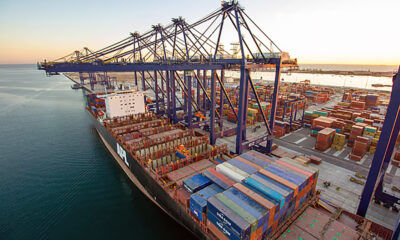
 Business5 days ago
Business5 days agoPakistan reports 56% drop in exports to Afghanistan in second half of 2025
-

 Sport3 days ago
Sport3 days agoAfghanistan’s Mahdi Norouzi ruled out of AFC Futsal Asian Cup due to injury
-

 Sport2 days ago
Sport2 days agoScotland name Afghanistan-born Zainullah Ihsan in T20 World Cup squad


